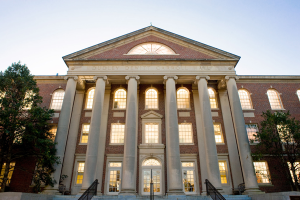Mary Junck Colloquium Series

Mary Junck Colloquium Series
The Mary Junck Research Colloquium series for the fall 2008 semester continues Thursday, Sept. 25, at 2 p.m. with Professor Joe Walther from the College of Communication Arts and Sciences at Michigan State University.
Walther will present on "Multiple-Agent Interfaces and the Influence Sources Who Comprise Them: A Communication-Theoretic Agenda for Web 2.0" from 2-3:15 p.m. in the Freedom Forum Conference Center on Carroll Hall's third floor. Colloquia talks will be held most Thursdays at the same time and location. The fall 2008 lineup is almost finalized and includes a diversity of speakers from UNC, Duke, RTI and around the country. Consult the schedule at www.unc.edu/~smithjes/colloquium/fall2008.html.
Barbara Wildemuth from the UNC School of Information and Library Science is the next speaker in the series (Oct. 2).
Joe Walther Bio: Joseph B. Walther is a Professor in the Department of Communication and the Department of Telecommunication, Information Studies and Media at Michigan State University. He holds a Ph.D. from the University of Arizona in Communication with a minor in Management Information Systems. His research focuses on the interpersonal dynamics of communication via computer networks, in personal relationships, work groups, social support, and educational settings, areas in which he has published original theories and empirically-based research articles in several leading social science journals.
He has previously held appointments in Psychology, Information Technology, and Education and Social Policy at universities in the US and England. He was chair of the Organizational Communication and Information Systems division of the Academy of Management, and the Communication and Technology division of the International Communication Association. His professional honors include the National Communication Association's Woolbert Award for an article that has stood the test of time and influenced thinking in the discipline for more than ten years.
Title: Multiple-Agent Interfaces and the Influence Sources Who Comprise Them: A Communication-Theoretic Agenda for Web 2.0
Abstract: Web 2.0 -- the "participatory web" -- frequently presents multiple agents simultaneously, e.g., videos and commentaries, sellers and customers, profile owners and their friends. Researchers can assess the conventional source characteristics of these agents and apply accepted theoretical approaches to understanding potential social influence in novel and emerging settings. Examples from Ebay, Facebook, and YouTube will be reviewed, and suggestions encouraged for new lines of research.